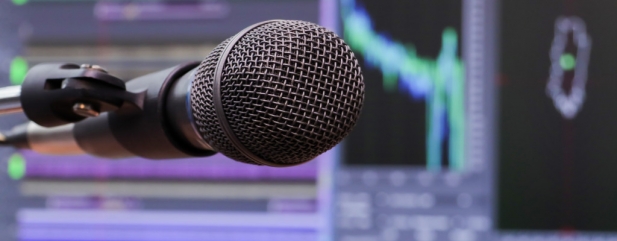Archived article
Please note that tax, investment, pension and ISA rules can change and the information and any views contained in this article may now be inaccurate.
Zoo Digital is finding its growth voice

TV and film broadcast services business Zoo Digital (ZOO:AIM) is set to make a profit breakthrough early next year.
Analysts at FinnCap anticipate $300,000 of pre-tax profit for the 12 months to 31 March 2018 on a 27% jump in revenue to $21m. Last year Zoo reported sales of $16.5m and a modest pre-tax loss.
The Sheffield and Los Angeles-based business has spent years trying to escape a sub-scale trap. Part of the solution is to use an in-house designed, multi-tools technology platform called ZOO Core.
The technology platform allows the company to provide niche localisation services, effectively adapting films and TV shows for overseas markets.
The big opportunity is using actors to provide dialogue dubbing into local languages, and subtitles.
There are many other localisation services that Zoo provides to make a programme culturally and legally suitable for a particular market. These include editing out actors smoking or drinking alcohol, putting clothing on naked cast members and even changing inappropriate background scenery.
Zoo works with all six of the big Hollywood film studios (20th Century Fox, Warner Bros, Paramount, Columbia, Universal and Walt Disney) and major TV broadcasters such as BBC Worldwide, ABC, NBC, CBS and HBO.
The proliferation of subscription-based on-demand streaming services is ramping up demand. Zoo works with Netflix, the big player in the streaming market, plus Google and Apple.
Hulu, Roku, Vevo and NowTV are just some of the many other streaming broadcasters to have emerged in recent years.
FinnCap estimates the potential for around 3,600 potential localisation TV episodes annually made in the US.
Zoo’s challenges include access to skilled voice dubbing. Zoo believes that working closely with digital dubbing editors is one way of controlling access to acting talent.
This is a project-based operating model with unpredictable revenue. The company admits that it seldom has more than three months’ forward visibility.
A last point worth considering is Zoo’s heavy reliance on a single customer, which represented 44% of last year’s income. Zoo hopes to cut that percentage by winning new clients which will dilute this reliance over time.
Having shot up from 16p in the summer to the current 57.1p, the stock is expensive and trades on 2.7-times this year’s forecast revenue, or about 28-times expected $2m earnings before interest, tax, depreciation and amortisation (EBITDA).
Maintaining the fast pace of growth may see those valuation metrics reduce to comfortable levels in time. (SF)
Important information:
These articles are provided by Shares magazine which is published by AJ Bell Media, a part of AJ Bell. Shares is not written by AJ Bell.
Shares is provided for your general information and use and is not a personal recommendation to invest. It is not intended to be relied upon by you in making or not making any investment decisions. The investments referred to in these articles will not be suitable for all investors. If in doubt please seek appropriate independent financial advice.
Investors acting on the information in these articles do so at their own risk and AJ Bell Media and its staff do not accept liability for losses suffered by investors as a result of their investment decisions.

 magazine
magazine









